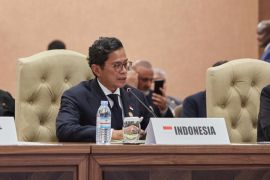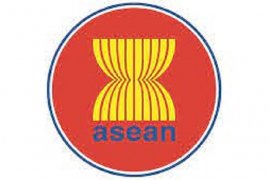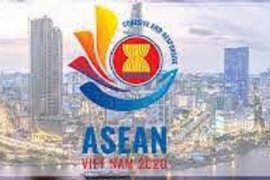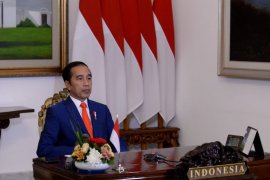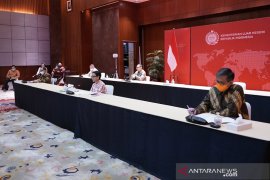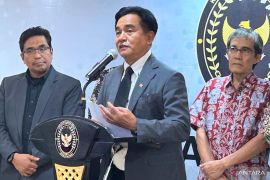The 12 people were killed when a car bomb tore through the entrance of the cemetery of Jaramana while the mourners were entering it to bury two young men who were killed Monday night in a swift succession when their cars were blown off by explosive devices in Jaramana.
The two young men had been serving as members of Jaramana`s local committees, groups of civilians from a certain neighborhood who get armed by the government to protect their area from the infiltration of armed insurgents.
Witnesses at the scene of Tuesday`s blast said traumatized people were running in panic, while ambulances were rushing to the site to transfer the killed and injured people to hospitals.
"It`s a massacre," one witness told Xinhua.
Another witness, who decried the attack as "a terrorist act," shouted, "Clearly those criminals don`t fear God... Those dead kids and young people, what is their guilt? "
The blast also damaged nearby buildings, one of which was left without its facade.
Such bombings, particularly in Jaramana, are expected by analysts to widen the gap between different sects in Syria, which is already engulfed by sectarian rivalries.
Jaramana has stayed mostly peaceful during the 18-month crisis in Syria. The suburb is dominated by Christians and Druze, minorities that have so far stood with the regime of Syrian President Bashar al-Assad.
While the sectarian tension in Syria is seemingly building up, around 20 opposition parties and bodies in the country said Tuesday that they have agreed to convene a conference on Sept. 12 in Damascus to "salvage Syria."
Rajaa Naser, a member of the opposition National Coordination Body, said any initiative should be based on halting the violence from all parties in order to establish an inclusive and democratic system.
Naser said the 20 opposition groups stressed on the Syrian people`s right of establishing a democratic and pluralistic regime and preserving its unity and sovereignty.
He said the country should be protected from militarily handling the crisis, "which has reached the extent of full destruction to the state," and reaching the edge of a civil war.
While the Syrian opposition at home are trying to contribute a solution, Iran, Syria`s most important ally in the region, is also trying to craft a solution to the intractable crisis.
Iranian Foreign Minister Ali Akbar Salehi said recently that his country will present a "rational and acceptable" proposal for settling the conflict in Syria during the summit of the Non- Aligned Movement (NAM) to be held in Tehran on Aug. 30-31.
Despite the flurry of diplomatic efforts, the prospect of the summit`s drafting a solution seems slim amid the ongoing violence and obvious unwillingness of superpowers, such as the United States, to let Iran take the lead in the efforts to solve the Syrian crisis.
Syrian Foreign Minister Walid al-Moallem told the Independent in a recent interview that "We believe that the U.S. is the major player against Syria and the rest are its instruments."
"We were told by some Western envoys at the beginning of this crisis that relations between Syria and Iran, Syria and Hezbollah, Syria and Hamas are the major elements behind this crisis," he said, adding that "But no one told us why it is forbidden for Syria to have relations with Iran, when most, if not all, the Gulf countries have very important relations with Iran." (C003)
Editor: Kunto Wibisono
Copyright © ANTARA 2012
